Who Is Gonçalo Inácio?
Rúben Amorim’s Sporting CP may not have defended their Portuguese Primeira Liga crown, but optimism is still high for the Lisbon side.
In addition to boasting one of the top young coaches in the world, Sporting still has a strong core of young players, many of which graduated from their famed academy.
One of these players is their excellent young centre-back, Gonçalo Inácio.
Typically featuring at left centre-back in Amorim’s back-three tactics, the 20-year-old Inácio has yet to feature for the full Portuguese national team, but he has been a regular for the youth sides.
With another strong campaign in the books, Inácio is primed to make the jump to the nation’s first team, especially with 39-year-old Pepe and 38-year-old José Fonte claiming two of the top three spots on the centre-back depth chart.
This Gonçalo Inácio scout report will detail his season at Sporting and highlight some of the finer aspects of his game.
He’s a player with tremendous upside, one with the quality to feature at the top levels of the game and become a regular on the international stage.
We’ll look at his statistical output and tactical profile at Sporting, then examine his top attacking and defensive qualities.
Gonçalo Inácio Style Of Play
Starting with Inácio’s data profile, we see a player with tremendous quality in possession.
He’s a player who enjoys having the ball at his feet and can comfortably play out of the back.
Relative to Primeira Liga centre-backs, he ranks in the 90th percentile or better in most passing categories.
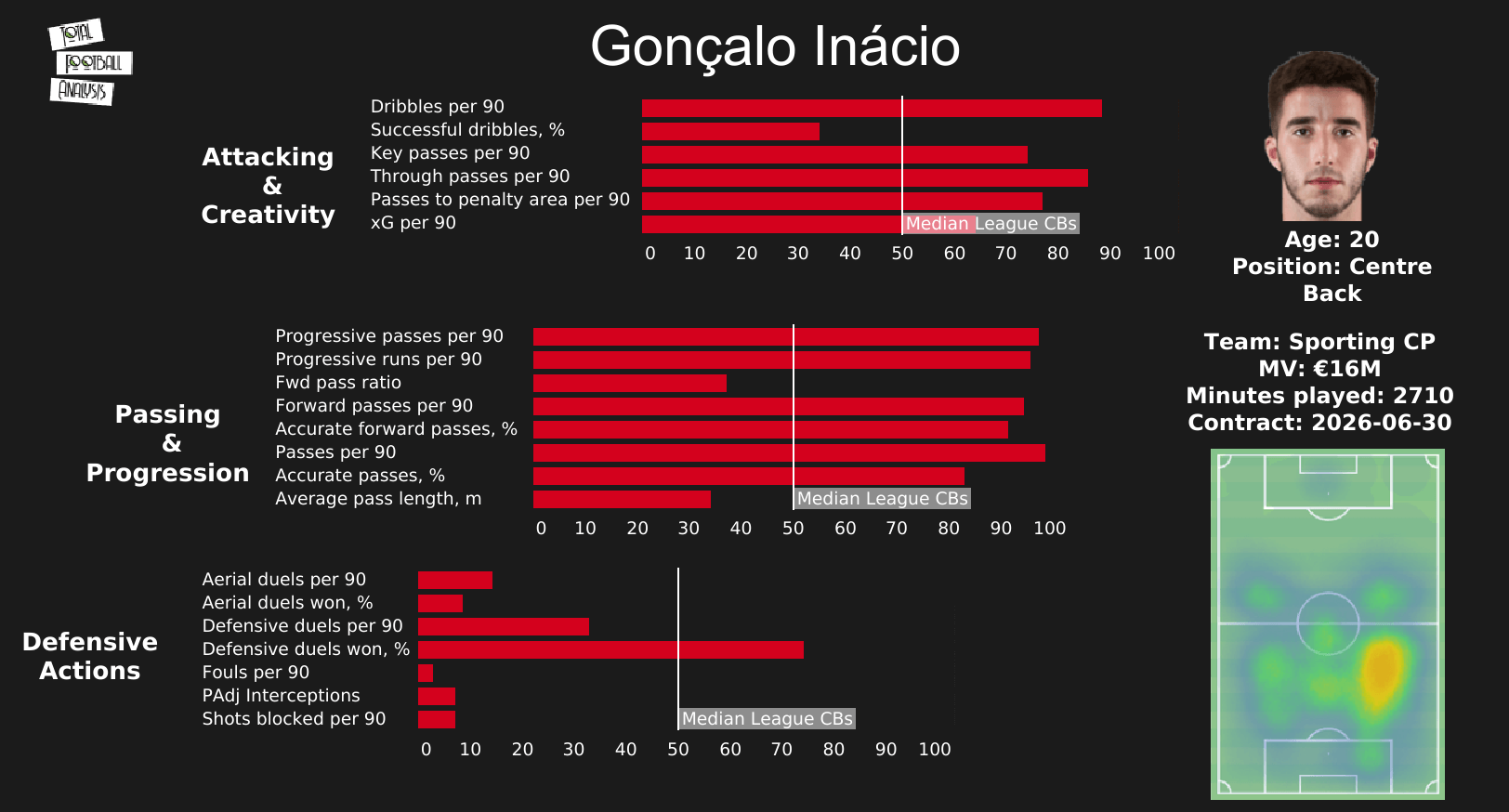
Another important aspect of his game, one that we will cover in greater depth later in this analysis, is his dribbling ability.
Since Sporting is typically the possession-dominant club in league play, Inácio’s dribble progression Is a key factor in helping his side break through the opposition’s lines.
A surprising aspect, one which will certainly draw some red flags, is his statistical output in defensive actions.
While he’s one of the best in the league in defensive duels won %, he rates very poorly in each of the other categories.
Standing at 185 cm, he’s a bit of an undersized centreback, which shows in his aerial duels.
While that’s not necessarily a surprise, his possession-adjusted interceptions p90 rates in the bottom 10% of the league.
There’s certainly more context needed to interpret that poor rating.
In our second section, we’ll focus on his defensive actions, breaking down his playing style to see if the numbers carry any cause for concern.
Turning to his positional role in Amorim’s tactics, Inácio typically plays as a left-sided CB in a back three.
That said, this season has shown that he’s a highly versatile player.
Over the course of the year, he has played at the centre of the three as well as on the right side.
His positioning along that line is highly flexible, allowing Amorim to rotate his centre-backs.
Even though Sporting play with a back three, their build-out more closely resembles that of a 4-2-3-1 with the two outside centre-backs splitting out wide while the centre of the three pushes higher into midfield to form a double pivot with João Palhinha.
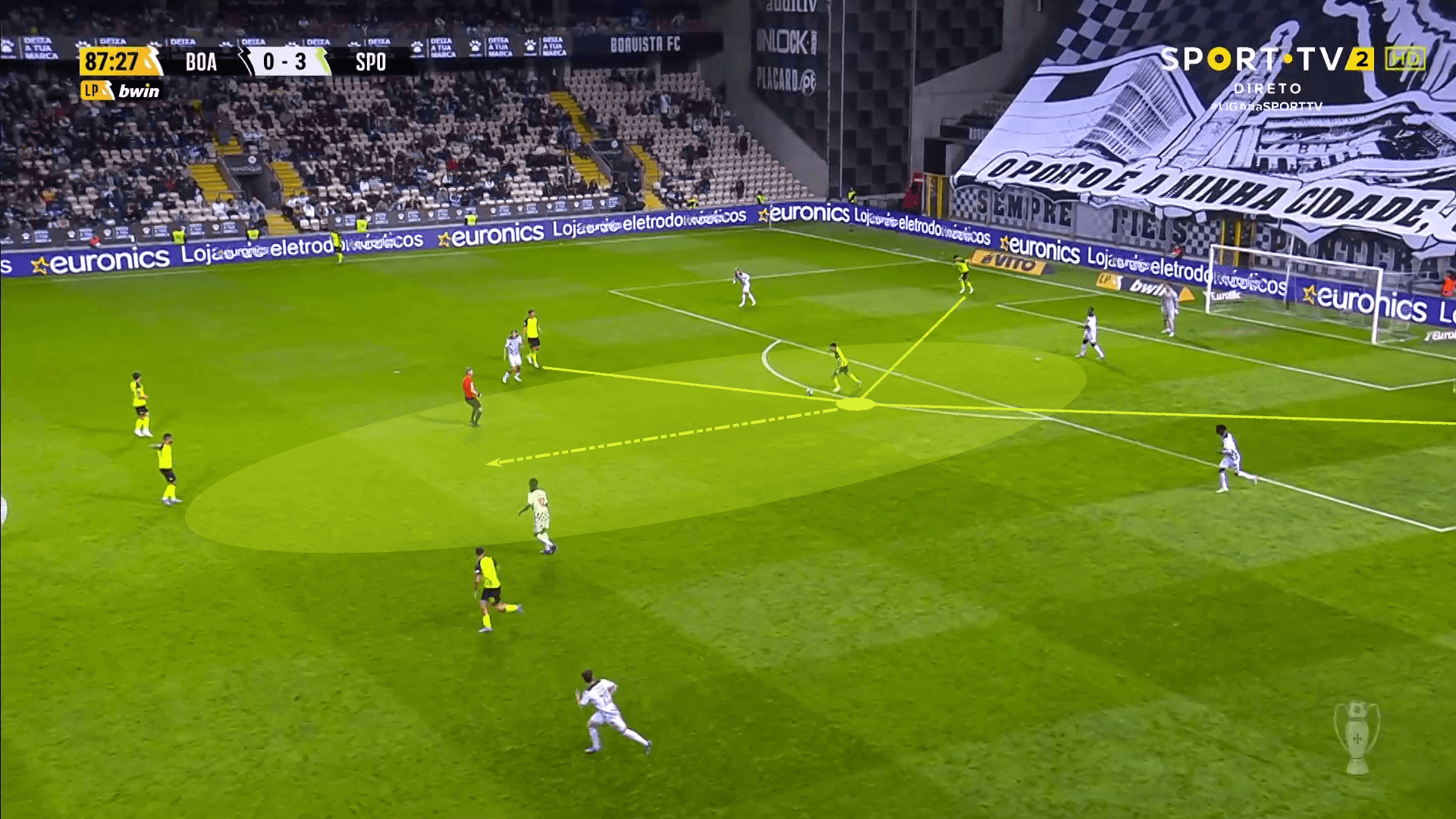
Inácio has played both as a wide centre-back and as the central centre-back pushing into midfield.
He has the versatility to play in a back three or four and the football IQ to perform either function well.
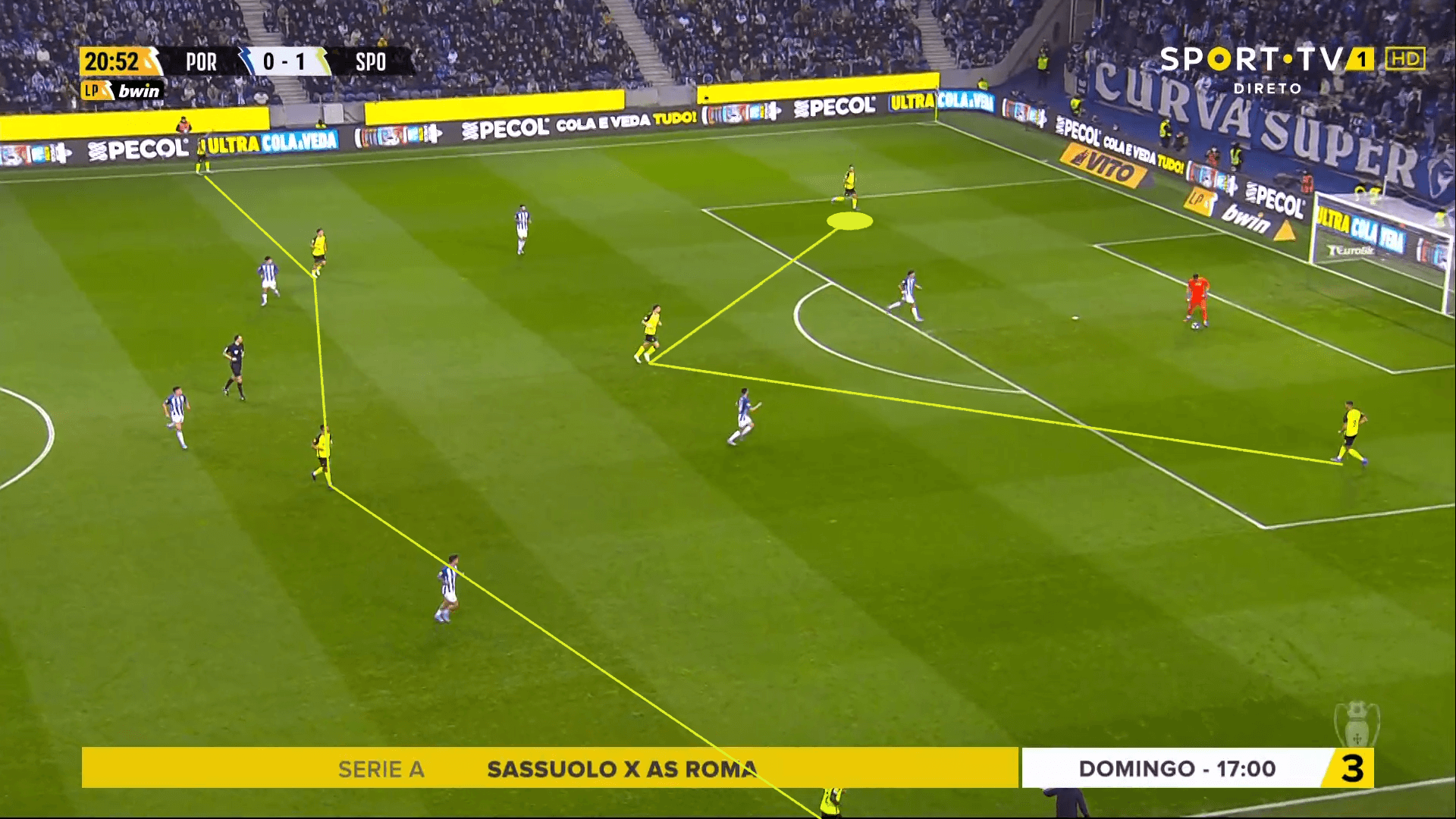
From a tactical analysis standpoint, he has the talent to remain in a back three and adapt to the demands of a back four, which is something he will need with the Portuguese national team and most future moves at the club level.
Gonçalo Inácio Defensive qualities
Referring back to our data profile, it’s Inácio’s defensive qualities that need a critical examination.
Looking specifically at the defensive data, his stats suggest that he is a player with excellent defensive technique but possibly lacking the physical strength to win aerial duels and either the positional awareness or anticipatory skills to routinely intercept passes.
One key thing to keep in mind is that Sporting, as the possession-dominant club with a back three, will often face Portuguese clubs with a one or three-man forward line.
Both Porto and Benfica will use a 4-4-2, but most of the other clubs will defend against Sporting in either a 4-5-1 or a 5-4-1.
With the opposition defending in those shapes, the defensive burden is typically more centrally or directly in front of the ball, limiting the number of interventions from the left and right centre-backs.
The more common intervention is the need for the two outside centre-backs to step into midfield or slide into the wings.
Watching Sporting matches, stepping into midfield is one of Inácio’s top qualities.
He’s a player with excellent mobility and body shape.
So, contrary to the statistical indicators, the film does show a player who anticipates play well and is prepared to intervene.
Take this example against Boavista.
The first frame shows the Porto-based side in possession of the ball in the central channel.
His body orientation shows he’s prepared to retreat into space if Boavista plays over the top, yet he’s also prepared to step forward to contest passes into midfield.
In the second frame, it’s the timing of his intervention that’s key.
With pressure on the opponent’s back, Inácio can then focus on the physical demands of the draw, impacting his opponent’s balance with well-placed contact.
Finally, his win in the duel allows his teammate to step in and claim the loose ball.
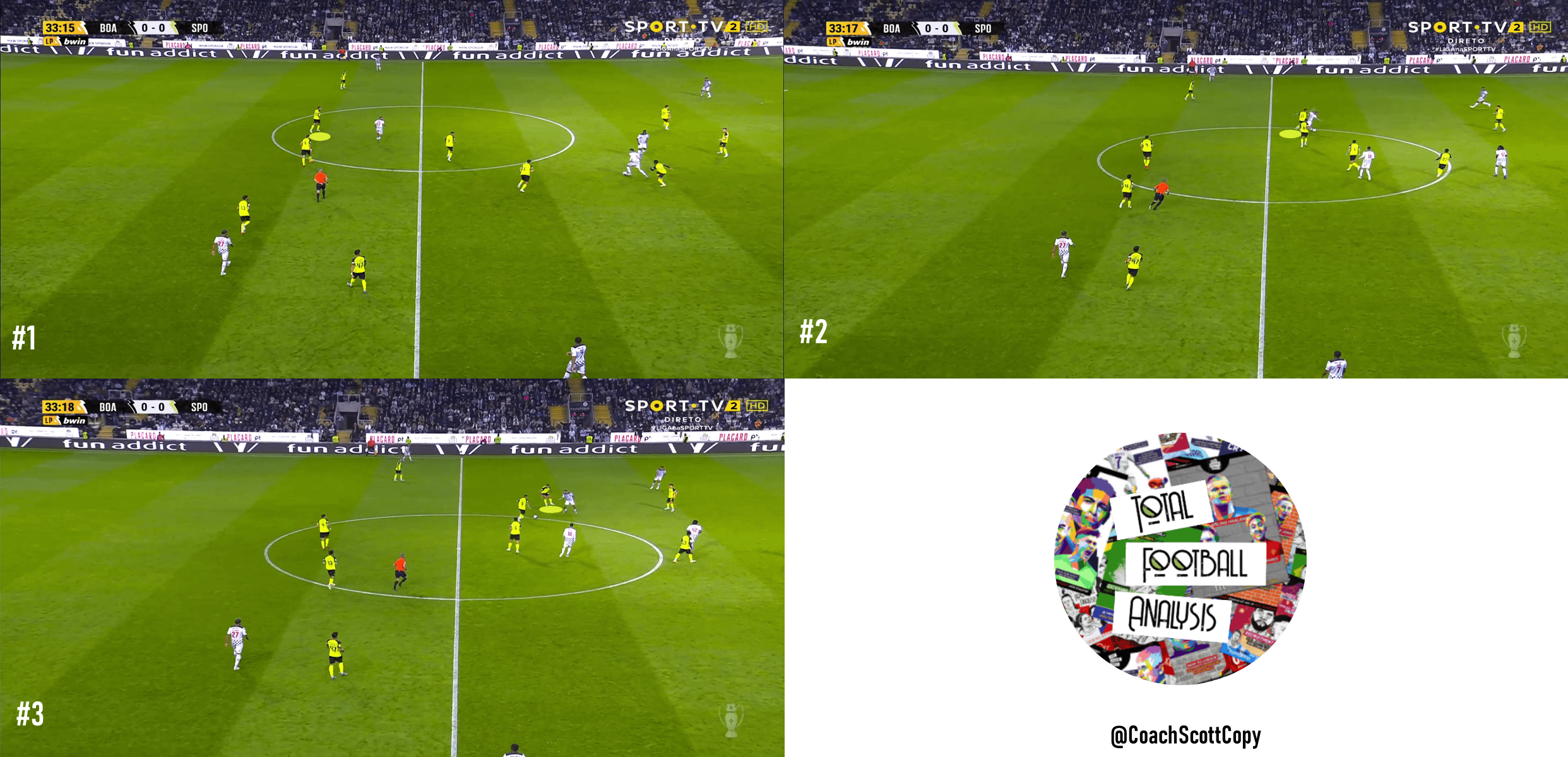
For someone who lacks the size of a prototypical centreback, showing the aggressiveness to step into midfield and end plays is critical.
That’s exactly how Sergio Ramos earned his status in the game.
Inácio is a very good athlete who covers ground well.
The previous example showed him stepping into midfield, but for a club like Sporting which plays with a high line, having the pace to cover space behind the line is a top priority.
This is again where Inácio’s ability to cover ground shines.
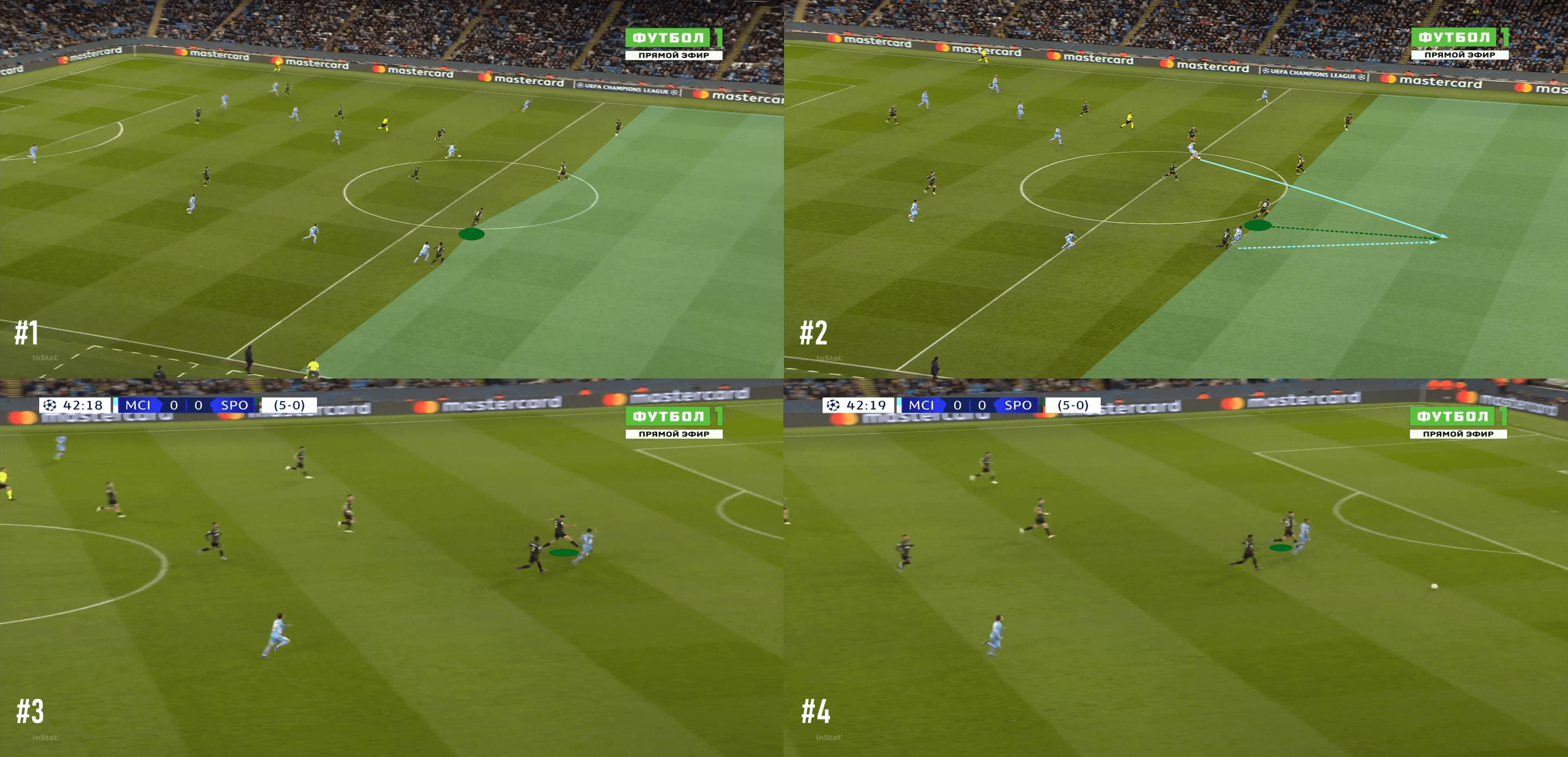
In the second leg of their Champions League tie against Manchester City, the EPL side played a through ball into the path of Gabriel Jesus, who had made his move into space.
Firstly, Inácio shows very good awareness to track the runner and predict the timing of the pass.
Even though Jesus has a head start, Inácio is well prepared to run with him.
In the final two frames, we see that Inácio beats him to the ball and manages to poke it away from danger.
Inácio adapts his positioning and body orientation at an above-average frequency, putting him in a better position to scan his surroundings and identify potential threats.
The first example came while playing a high line, but the second is from his defensive third.
Setting the scene, Inácio is highlighted with a Benfica forward off his back shoulder.
Inácio’s head is turned in the direction of his opponent, watching the type of run he is offering the first attacker.
Seeing that his opponent intends to cut in front of him before running behind the backline, the Sporting centre-back adjusted his positioning closer to the ball in preparation to track the runner.
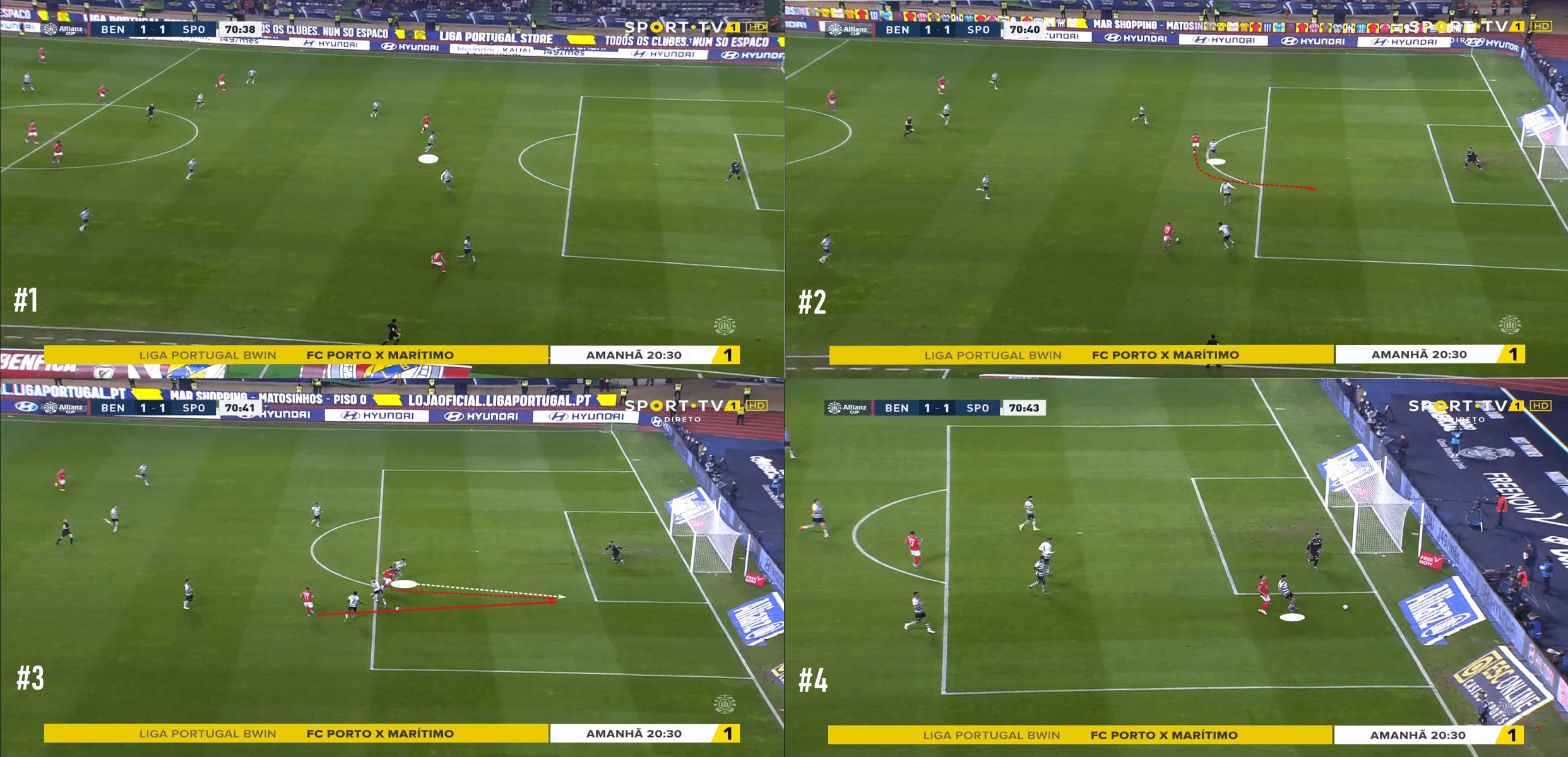
In the third frame, the run is on.
Notice Inácio’s positioning as the two players make their move to the ball.
Even though his opponent is attempting to accelerate past him, Inácio’s positioning and awareness have kept him a step ahead.
The Benfica forward gets to the ball first with a lunging poke sending the ball out of bounds.
Even though he got to the ball first, Inácio maintained a positional superiority throughout.
His quickness, both physically and mentally, led to this decisive win in his box.
As an outside centre-back in a three-back system, his mobility is routinely on display when covering in the wings.
One such case occurred against Manchester City.
As the Cityzens attempted the underlap, Inácio quickly read the sequence and raced into the wings to deny intermediate crossing opportunity.
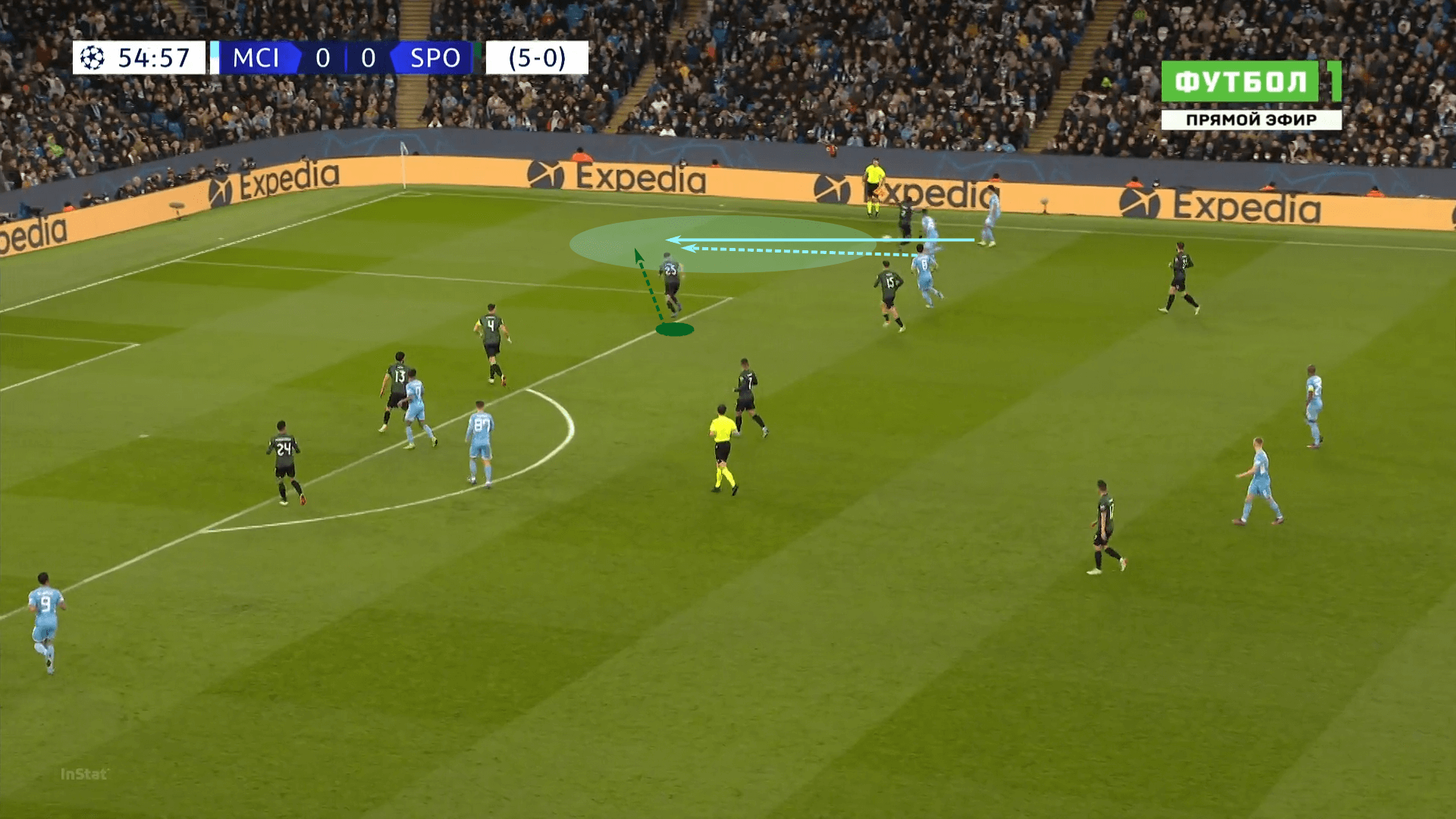
Even though his opponent got their first, Inácio was on his back, locking him into the wing.
That first action to slow the City attack allowed Sporting to get numbers around the ball and limit the options to play out of pressure.
Had Inácio been a step or two behind the play, he would have allowed his opponent to correct his body orientation, turning towards the inside of the pitch and increasing the number of ways to play out of pressure.
Awareness and mobility were on full display.
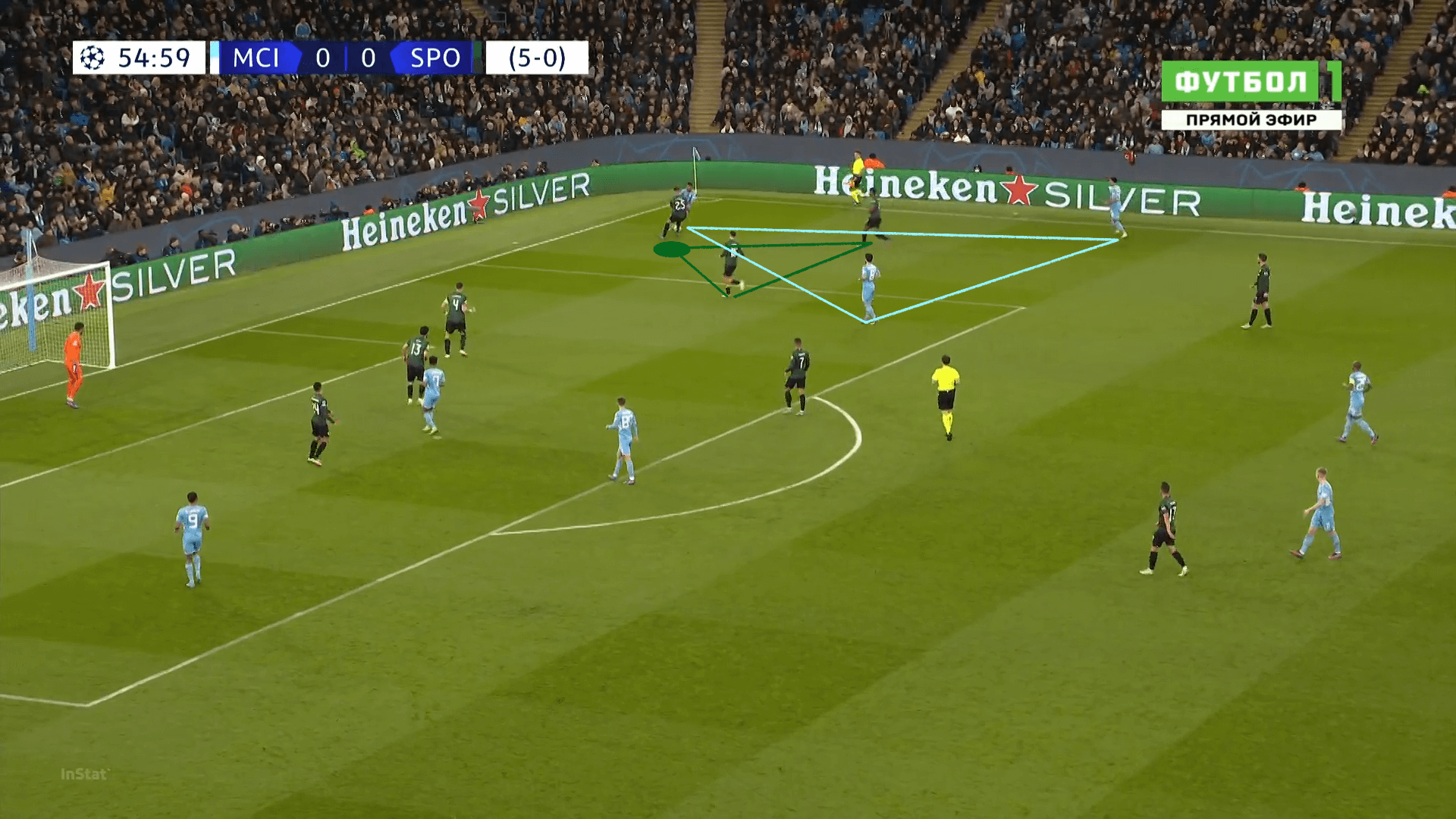
Even though his defensive metrics aren’t encouraging, film analysis shows a different story.
Inácio is a highly mobile player who covers ground well, shows very good awareness and has excellent body orientation that allows him to use explosive moments in whichever direction is necessary.
He’s very aggressive, very confident in the tackle and is quick to apply pressure on his opponents without leaving his teammates vulnerable.
Gonçalo Inácio Attacking qualities
Let’s move to the strength of Inácio’s play, his talents in possession.
Sporting play with a very unique back three setup.
We’ve already shown how the central player of the three will step into midfield during the buildout.
As Sporting progresses the attack into the middle third of the pitch, that central player will slide back between his two partners and anchor the central channel.
Within that role, Inácio has shown the ability to play through the press with passes on the ground or play over them with long diagonals into the wings, as he did against Benfica.
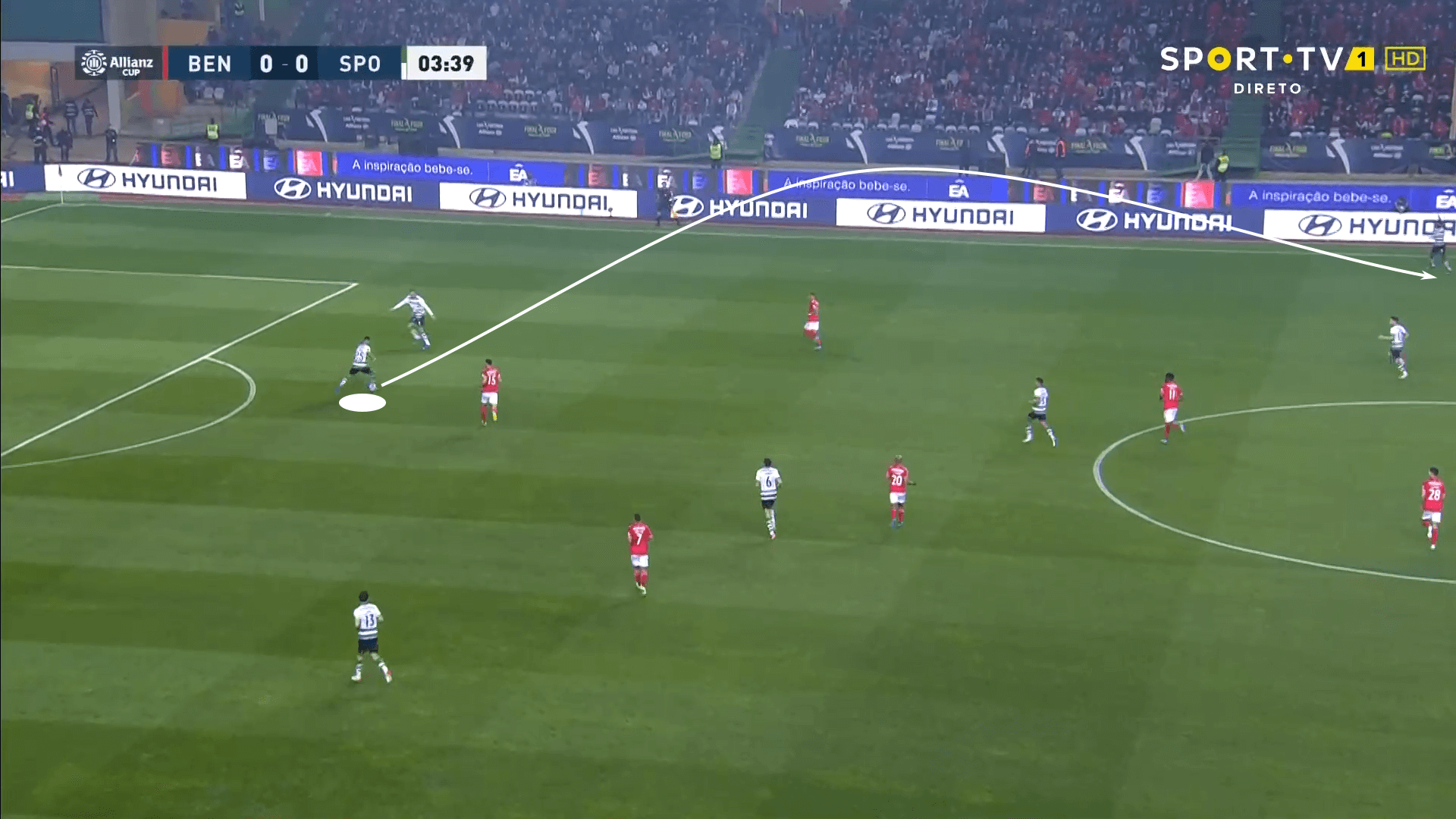
He can play anywhere in a back three and comfortably lead the build-out.
With the Portuguese youth teams, he is also shown the qualities to adapt to a back four.
When Inácio plays left or right centre-back, he’s a player who likes to use his dribbling ability to draw out the opposition’s midfield.
As Inácio dribbles up the pitch, you can see his eyes actively scanning for teammates moving between the lines.
His objective is to draw the opposition’s midfield higher up the pitch, pin them and then play into the feet of his midfielders between the lines or into the free player in the wings.
It’s a sequence he turns to very often.
Recently against Portimonense, play was quickly switched to Inácio, who took an aggressive touch forward, attacking the disorganized opponent.
He was able to dribble into the middle third before the Portimonense’s midfield was able to recover and halt his progress.
By the time they could apply pressure on him, Inácio calmly played the ball into the wings for Pedro Porro, whose scout report was recently featured in Total Football Analysis Magazine.
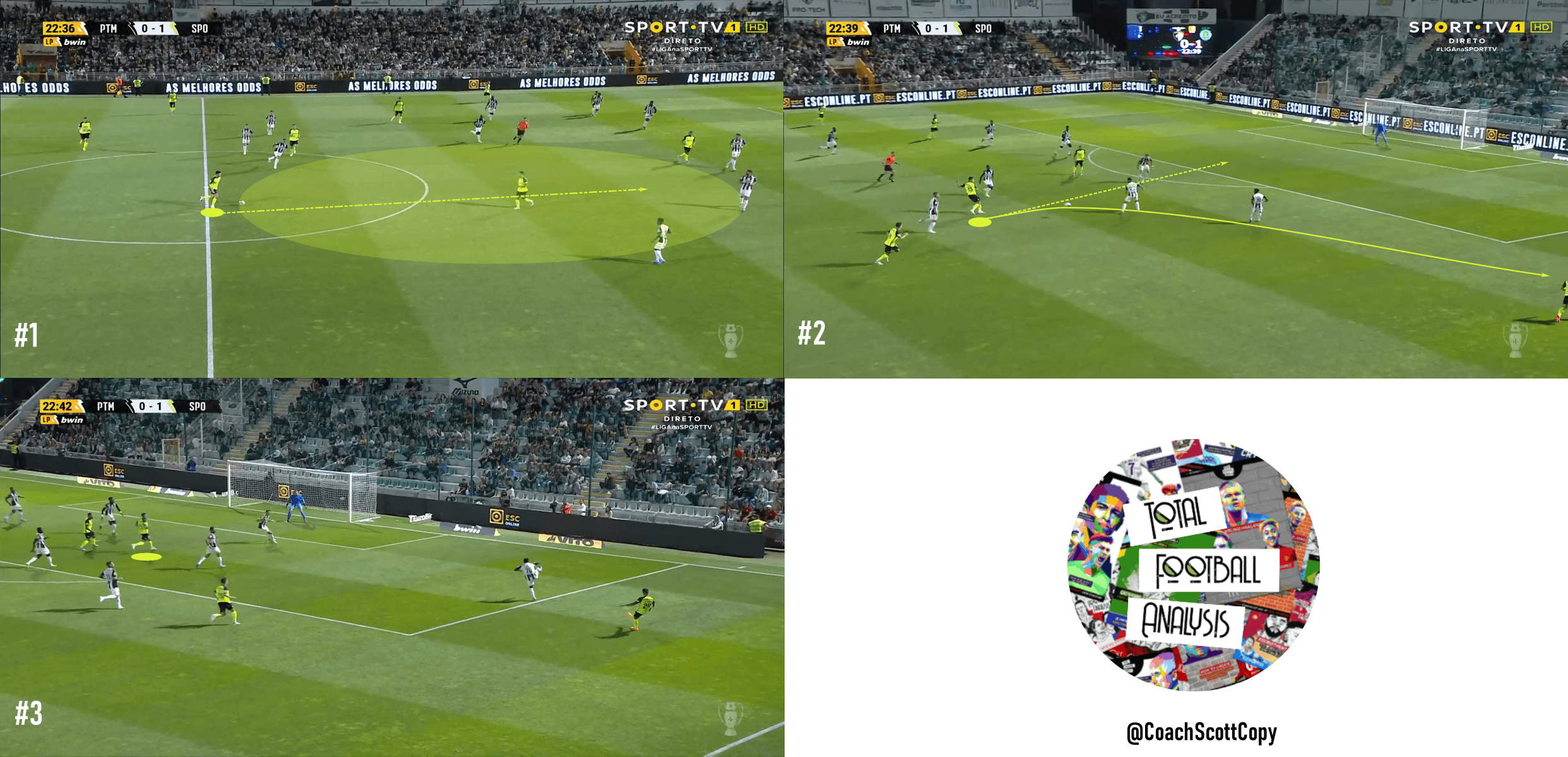
As the ball travelled to Porro, Inácio offered a run into the box.
He’s a player who enjoys the freedom of a three-back system.
Whereas a four-back system limits his opportunities to move forward, the young Portuguese takes full advantage of the space afforded him through Amorim’s tactics.
It’s important to note he isn’t reckless or overly aggressive.
Instead, his dribble progressions are carefully chosen with excellent timing as he releases his passes, minimizing risk.
We can see that in an example against Boavista.
With the opponents defending in a 5-3-2 and Sporting struggling to break down their mid-block, Inácio split the forwards on the dribble and engaged the midfield.
With the opposition’s press becoming more compact near the ball, Inácio played a long diagonal into the wings, sending Sporting 4v4 into the final third.
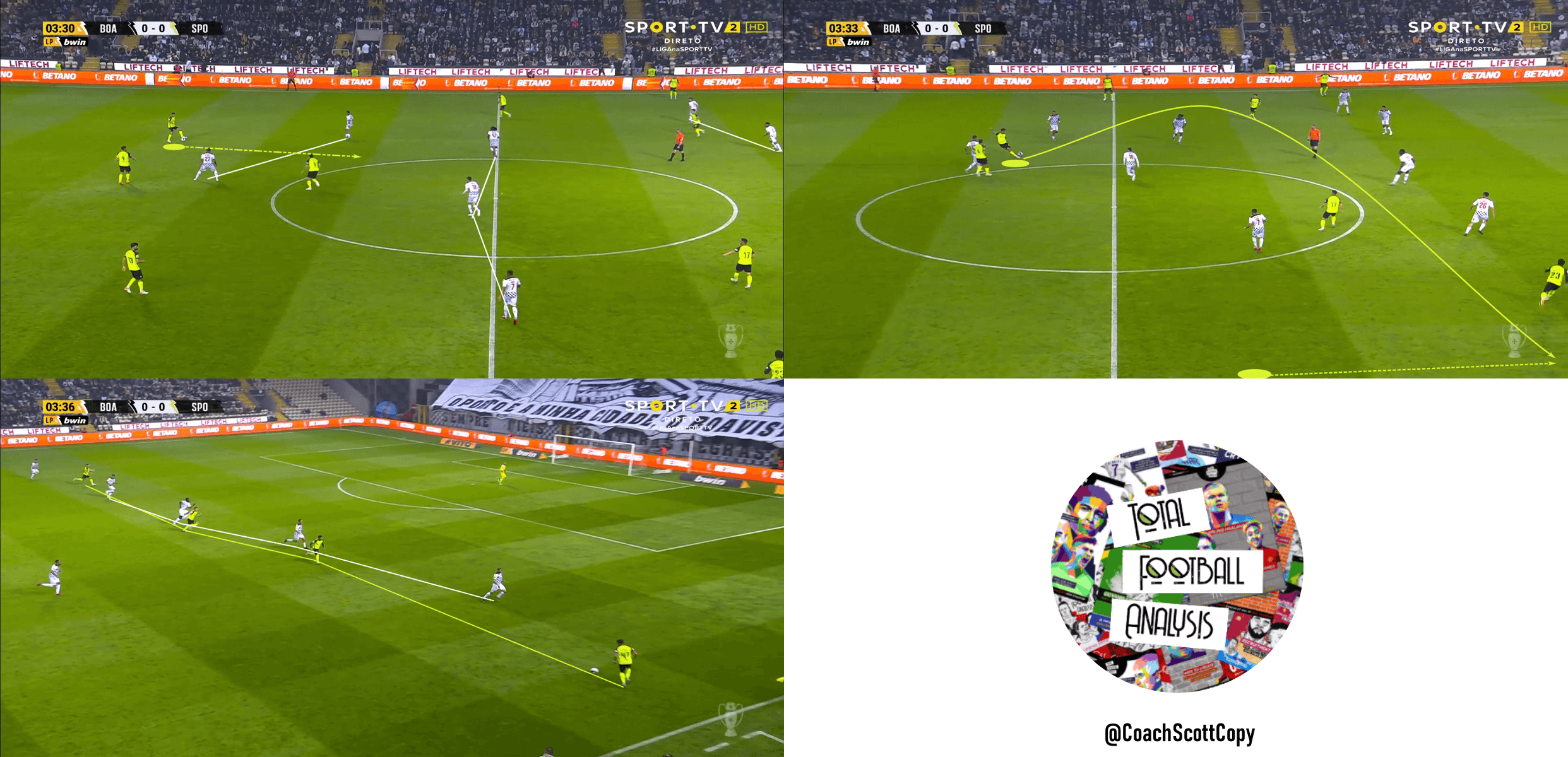
The first three examples from This section have shown Inácio’s high footballing IQ.
Each action has shown an understanding of how he uses his technical quality to break the opposition’s press.
With the last two examples, his willingness to engage the opponent through the dribble, setting up high-quality attacking opportunities elsewhere, gives an idea of the sense of purpose in his game.
He has excellent awareness, which is shown both in open attacks and in transition.
One of the key talents he brings in transitional attacking is that he can routinely play the first pass forward after a recovery.
He’s prepared to play and has a very good understanding of his options at all times.
That was exactly the case against Portimonense.
The value in these actions is that he helps his team immediately break the counterpress while bypassing one or two of the opposition’s lines.
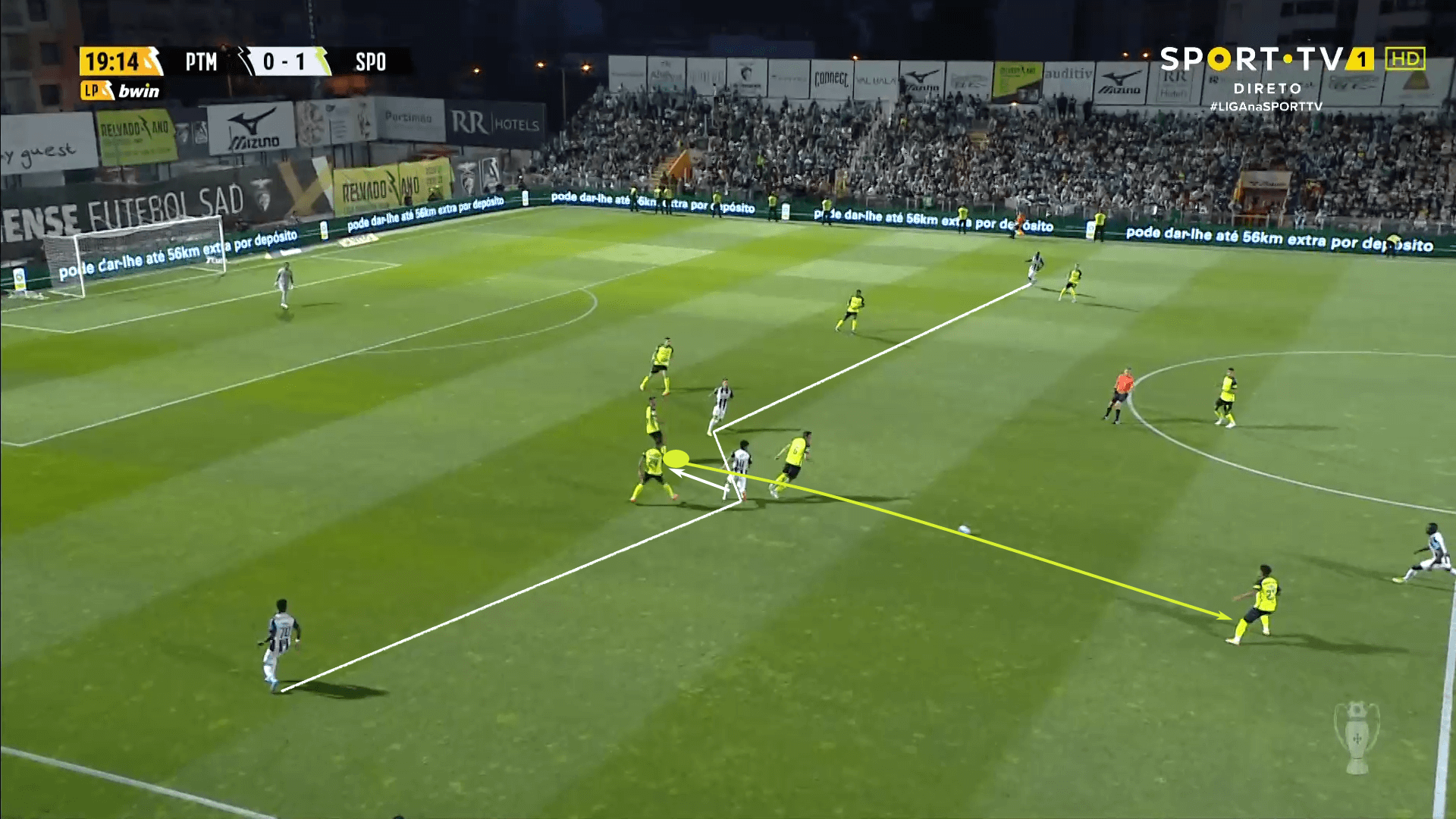
He is a highly skilled and technically gifted player, but perhaps the most fitting description of his attacking contribution is his understanding of how to break the opposition’s press.
He routinely puts the opposition under duress and picks them apart with incisive passes.
For two years, Amorim has relied on him to provide that cutting edge from the backline and the 20-year-old has carried out his duties in a commendable manner.
Conclusion
As with all great young talents, there are rumours of moves to Europe’s elite.
The strongest current rumour is of a move to Manchester United.
Whether he moves in the summer of 2022 or not is up in the air, but what is certain is that Sporting has a budding, young centre-back in their ranks who has the potential to play the game at the highest levels.
Gonçalo Inácio is Sporting’s present and Portugal’s future.
Once the immortal Pepe leaves the pitch, look for Inácio to compete for the place beside Rúben Dias.
With his exceptional attacking contributions and alert, physical defending, Inácio is one of the top young centre-backs in the game and primed for a successful career.

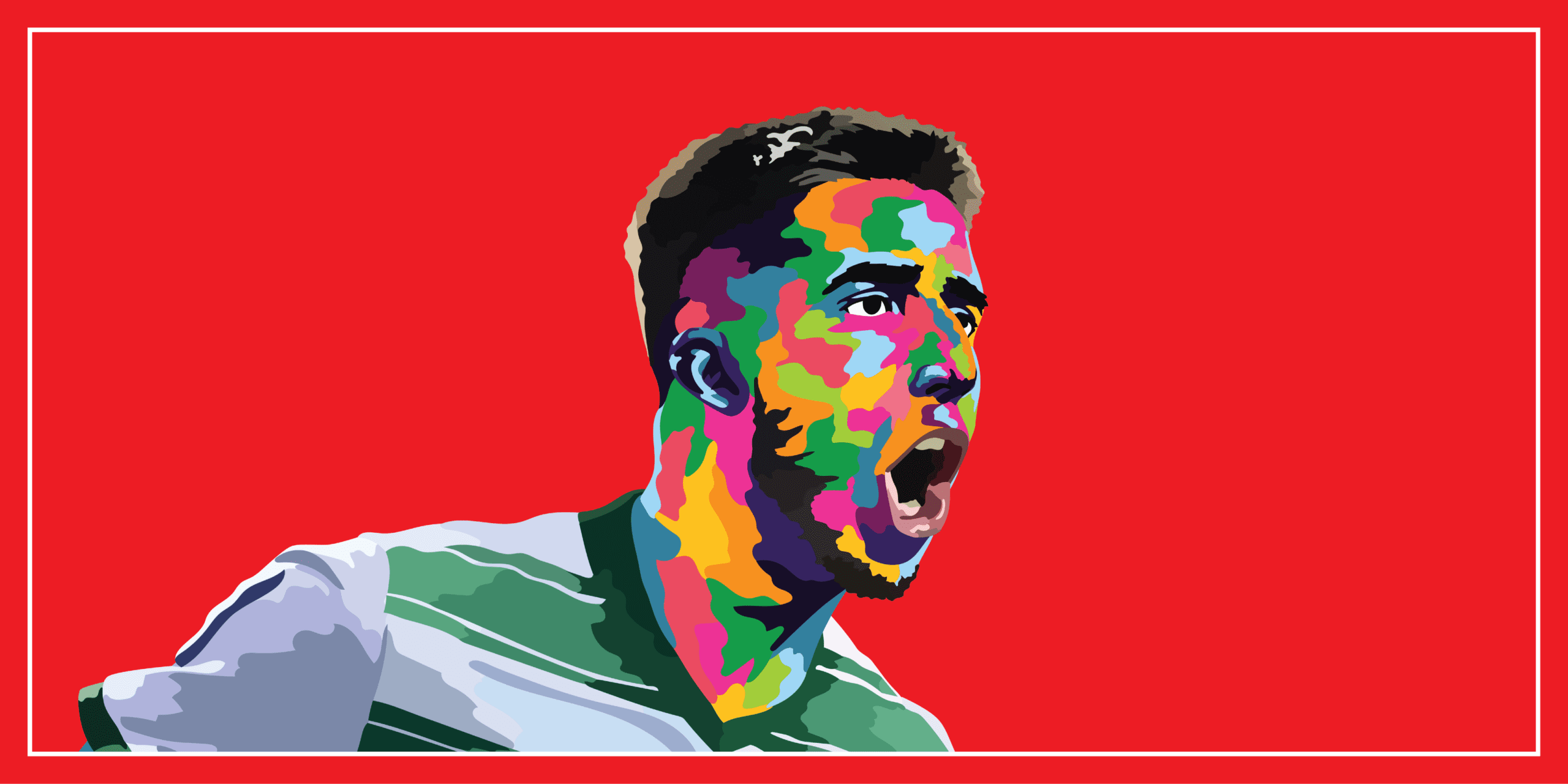
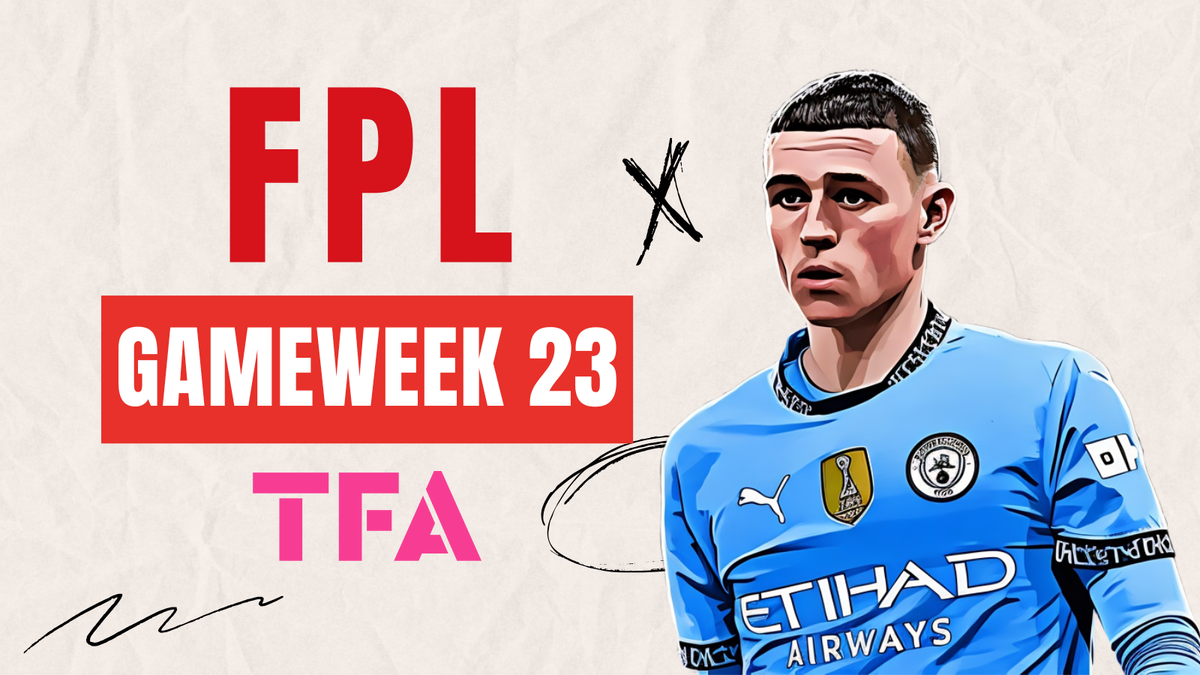
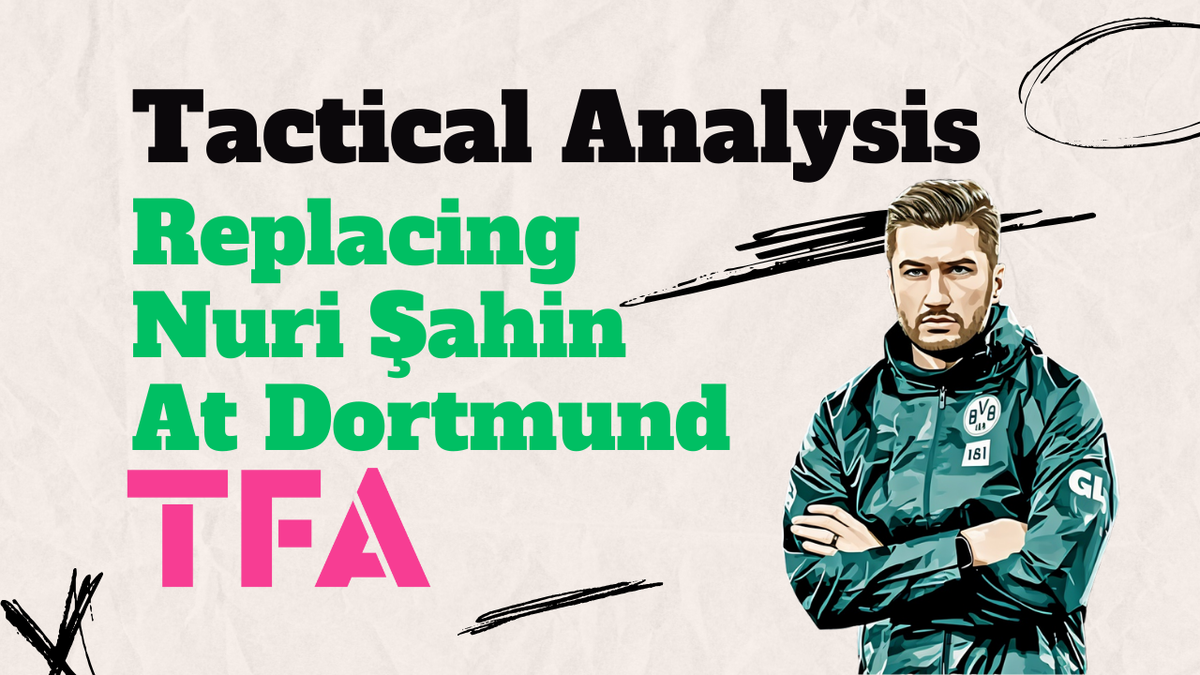
Comments